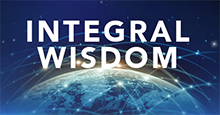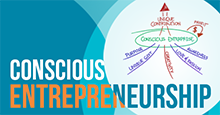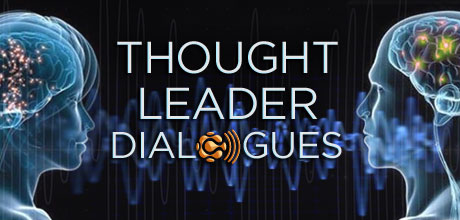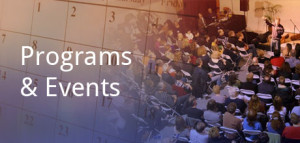Who is Marc Gafni? – A Biographical Essay on Marc Gafni by Spiritual Teacher Sally Kempton
Who is Marc Gafni? – A Biographical Essay on Marc Gafni by Spiritual Teacher Sally Kempton
 To watch Marc Gafni teaching is like watching a spiritual juggler working with fireballs. He’s an electrifying speaker, larger than life teacher, made for the big stage, yet able, in a small room, to draw a group into a shared experience of community and insight. One-on-one, his students attest, he can be a catalyst for life-changing transformation. By turns challenging and tender, Marc ranges comfortably through a forest of references–quoting Aramaic texts and Jung, drawing on films and popular songs, throwing out insights like sparklers. When you come away from spending an hour with him, you’ll often find yourself looking at an old subject in an entirely new way.
To watch Marc Gafni teaching is like watching a spiritual juggler working with fireballs. He’s an electrifying speaker, larger than life teacher, made for the big stage, yet able, in a small room, to draw a group into a shared experience of community and insight. One-on-one, his students attest, he can be a catalyst for life-changing transformation. By turns challenging and tender, Marc ranges comfortably through a forest of references–quoting Aramaic texts and Jung, drawing on films and popular songs, throwing out insights like sparklers. When you come away from spending an hour with him, you’ll often find yourself looking at an old subject in an entirely new way.
In the world of Jewish scholarship, Marc was long regarded as one of the most brilliant text scholars and teachers of his generation. His re-readings of Hebrew wisdom texts influenced thousands of students of Judaism; many of his former students continue to reflect his teachings and style. As a rabbi, he focused on connecting young, secular Israelis to the mysticism of their own tradition. He succeeded in creating a popular mystical movement in Israel, where Sabbath gatherings included cutting edge insight along with powerful song and dance. His own inner identity and teaching gradually evolved from a traditional Orthodox Judaism to a far wider and more integral form of spirituality. His recent work centers upon a think tank called the Center for Integral Wisdom, which aims at creating a framework for integrating the wisdom of the religious traditions with cutting edge psychological, scientific and political insights. He’s written ten books, and maintains an intense schedule of private students, family commitments, retreat teaching and movement building.
On a deeper level, Marc is a man committed to an evolutionary journey grounded in radical love for the world. The journey has taken him, by stages, from Modern Orthodox Judaism into a leadership role with Ken Wilber in articulating an Integral Evolutionary Spirituality.
I write as a friend. My perspective on Marc Gafni, and everything I have to say in this essay, comes from having known and worked with him closely for more than eight years. I’ve seen Marc’s natural gifts as a teacher deepened by the profound inner work he has done during the years I’ve known him. More than that, I’ve seen his commitment to keeping his heart open and his spirit buoyant. And, over and over again, I’ve enjoyed his capacity to tenderize hearts, and put people in touch with their own love.
In a recent retreat talk, he said, “We live in world of outrageous pain. The only response to outrageous pain is outrageous love. What is the path of the outrageous lover? To commit acts of outrageous love. And what is the first act of outrageous love that you might commit. Write an outrageous love letter…. And then awaken to realize that you are an outrageous love letter.”
Marc’s life calls all who meet him, to love outrageously.
This, in fact, is the path he walks himself. Marc’s life is very much an outrageous love letter.
What is this Guy Saying?
Let’s begin with Marc’s teaching. Along with his work on classical Hebrew texts, Marc is best known to date for six sets of insights.
First is his teaching on Unique Self enlightenment, most fully developed in his award-winning 2012 book, Your Unique Self: The Radical Path to Personal Enlightenment, (Integral Publishers 2011) and in a special issue of Journal of Integral Theory and Practice, peer reviewed Journal, 2011).The root of this teaching is first articulated by Marc in his two volume magisterial work, Radical Kabbalah. Marc first put this teaching into the world, against the conventional wisdom of virtually all other teachers in the late nineties. He taught it all over the world time and again. Today it is held by many teachers and students as a core evolution of enlightenment teaching. The gist of it is this: Marc intuits that after full impersonal enlightenment, a trans-egoic yet irreducibly unique personal essence quality emerges in us. He describes this unique self as an expression of the evolving divine, which “wakes up in you, as you, and through you,” — a radically personal self that emerges from the enlightened state and is a unique expression of enlightenment. He often says that this self never was, is or will be ever again, and that it has its own unique gifts and obligations. Marc in a key work called Self, Two Models of Evolutionary Mysticism challenges the impersonal teachings which have dominated evolutionary spirituality and points to the personal quality of essence that lives beyond the impersonal, what he calls the personal face of the evolutionary impulse. The earliest version of this teaching was published by Marc in SoulPrints (Simon and Schuster, 2001).
His second major teaching–emerging as an evolution of western and eastern esotericism — is that Eros is an essential component of the sacred. Marc describes ten qualities of Eros which emerge in an awakened life. Marc charts in great depth the relationship between all dimensions of life and intimacy, describing eros as the animating energy in every arena of life. Essential to Marc’s teaching is that God is Eros. Eros means full and radical aliveness. He teaches that every single moment is either open or closed. Every moment is either loved open to God or remains closed. To be awake means to receive the unique quality and gifts in every moment, to let the new moment love you open, and to love every new moment open and give your unique gifts into that moment. That is what it means he says “to align with the evolutionary impulse and live an eros drenched life”. The first version of this teaching was published in his seminal work, Mystery of Love (2003) and in a cover article in Tikkun Magazine, On the Erotic and the Ethical (2004).
His third major teaching and latest work explores a set of principles for what he and Ken Wilber call a “World Spirituality based on Integral principles”–that is, a spirituality that includes the essential principles of the religious traditions, but that also integrates the understandings of contemporary science and psychology, as well as the enduring insights of modernism and post-modernism. A World Spirituality Practice book is forthcoming (2015) as well as a book with Ken Wilber, Wake Up, Grow Up, Show Up, A Users Guide to the Universe. (2015).
His fourth set of teachings focus on emotions,Integral Religion and the reclaiming of Ritual. The first book published in this vein is a major work on the nature of crying and Integral Religion. It is entitled, Tears: Integral Religion, Ritual and Rosh Hashanna.
His most recent teachings, the fifth set of teachings, which animate all the others, I have already referred to above, the teaching of Outrageous Love as a response to Outrageous Pain and the practice of writing of Outrageous Love Letters to awaken to the way of the Outrageous Lover. These will be the subject of a set of books on Outrageous Love.
The final and fith set of teachings to date, articulated together with Ken Wilber, John Mackey, Kate Maloney and others is re-visioning of the core cultural category of Success. The core principles are Wake Up, Grow, and Show Up. Wake Up to the larger context of life, Grow Up in psychological maturity and higher levels of consciousness and Show Up living your Unique Self and giving Your Unique Gifts.
An outstanding teacher is outstanding because s/he teaches what s/he most deeply lives. Marc can teach about the uniqueness of the self, the centrality of Eros, Outrageous Love, Tears, Success, and the need for a global spirituality because he lives them.
In this piece, I’ll explain what some of this means in practice.
Heart/Intellect Balance
There’s little question in my mind that part of Marc’s teaching on unique self was inspired by his personal experience. A piece of Marc Gafni’s uniqueness is his ability to function simultaneously through the intellect and the heart. He reads widely, thinks systematically and debates masterfully. (A colleague jokes, “Give Marc a topic and he’ll give you 12 numbered insights about it.”) But unlike many other intellectually brilliant people, he is fluent in the language of feeling. He connects to people through the heart. In the years since I’ve known Marc, I’ve consistently seen him reach out to befriend people. He has a genuine concern for people who are hurting, and seems to have the ability to see the beauty in almost anyone. To use Malcolm Gladwell’s word, Marc is a connector. He brings people together, and he can show them how to appreciate each other’s unique qualities. He is also radically generous to everyone in his circle and beyond with both his time, heart and money.
All this is part of Marc’s commitment to expressing Eros.
Eros can be present in any encounter. Futurist Barbara Marx Hubbard recently defined such encounters as ‘supra-sexual,’ meaning that there is a deep, merging of minds and energies between people that can take place over ideas, conversation, or working together, or in a teacher-student contact. Marc’s teaching as well as his personal encounters often have that particular quality of presence.
And, he is audacious. Here’s a story that is typically Gafni. When Marc was 24, he ran a youth movement that aimed at reconnecting alienated Jewish kids to their spiritual roots in dozens of public and private schools in New York. It became, according to one newspaper article, one the most successful Jewish outreach initiatives of its time. Once, Marc went to ask a famous Wall Street financier for a large donation to support the group.
Gafni walked into the trading floor of this man’s powerful Wall Street firm. The CEO, seated on the larger chair in the middle of the trading floor, was himself known for his provocative audacity. He told Marc he had two minutes to make his case. Marc did so and the man responded, loudly, “I don’t believe in God. I think God is a crock of … So why should I give money to your religious program?”
Everyone on the trading floor laughed. Marc responded “Are you willing to make a bet with me? Ten thousand dollars on the line?” As the financier later told the story, he agreed. Marc continued, “Give me an hour to convince you that God exists. If I can convince you, you give me $10,000. If I can’t, I’ll give you $10,000.” The financier assented, and ended by giving Marc the donation. Marc had convinced him that God exists–a good thing, because if he had lost the bet, there was no way he could have paid it off!
That incident might give you a sense both of Marc’s audacity and of the scope of his gifts. Perhaps the financier was touched by Marc’s boldness. But there was a bit more to it. The financier and Marc became friends. What began as a business encounter became something more intimate.
You could write off Marc’s capacity to make friends with people to charm, or charisma. But the deeper truth is that Marc connects with people because in some sense, he falls in love with them. Marc has the rare gift of being able to see through people’s masks, and to discern and honor their special gifts and their unique wounds. Marc naturally connects with powerful people because they recognize him as a peer, they sense his integrity, and are correctly moved by his vision and goodness.
Here’s another story.
In 2006, Marc was in Salt Lake. After suffering a set of false attacks during a difficult time he was in almost continual emotional pain and heartbreak. One day, late for an important appointment upon which his future safety and teaching seemed to depend, he was waiting for a bus in 104-degree desert weather. He had just realized that the bus wasn’t coming and that he was not going to be able to make the appointment. It felt like the last straw.
Just as he was about to trudge away, a car pulled up. A middle aged woman leaned out and said, ‘That bus doesn’t run anymore. Where are you going?” He told her. “Ok,” she said. “Get in. Something just told me I should stop for you.”
Gratefully, he got in the car, and she drove him into the city. As they drove, she began telling him about her life. It was a painful life, full of heartbreak, and a recent separation from her husband. He listened quietly, as he does with many people, He forgot about his own predicament as he entered in world and her story. As they drove up to Marc’s destination, the woman said, with tears in her eyes, ‘I’ve never felt quite like this with anyone. Who are you, the high priest?” She was referring to the priest in the Mormon temple, one of whose functions is to be the witness to others, and to hold their pain.
This woman’s experience is not uncommon for people who spend time with Marc. I have seen him enter someone story in this way many times. Friends know that even when Marc is distracted, wildly busy or even fearful, he is nearly always willing and able to drop into a space of deep listening. He does this with friends and strangers, and as a result, people often feel heard by him in a way that is not common in their lives. Women talk to him like a girlfriend. Men bond with him over ideas. Strangers tell him their life-stories. Marc can hold others’ vulnerability because he is willing to be vulnerable himself. His intellectual precision is aligned with an unusual capacity for empathy.
Shortly after I first met Marc, I sat next to him on a panel of teachers. In contrast to the other teachers, who were all somewhat stiff in their dignity, Marc was openly friendly, as if we’d known each other for years. Having known many kind but impersonal spiritual teachers (and being that sort of impersonal teacher myself!) I was struck by how personal Marc’s kindness felt. I remember actually reminding myself that his friendliness should not be regarded as ‘special’ to me, that it was clearly a quality of his realization, this sincere ability to make a near-stranger feel like a friend.
What I didn’t see then, but have come to know since, is that his feeling towards me was ‘special.’ He’s one of those rare human beings who can have intimate, loving relationships with many people. They are rarely sexual in any physical sense. But they are often erotically tinged, and can have a romantic flavor. When he says “I love you,” (which he says often, and to many of the people in his circle), he means it. However–and this, for many people, is the rub— when he says ‘I love you’, he doesn’t mean “I love only you.” This can be disconcerting to someone who is looking for an exclusive relationship, and it’s been a major source of conflict in Marc’s life. Yet the boundless quality of his lovingness is actually one of the clues as to his particular uniqueness of spirit.
The Krishna Archetype
Over the years, I’ve come to see Marc Gafni as an expression of the archetypal energy that in the Indian tradition is associated with Krishna. According to master depth psychologist CG Jung, many people have a natural affinity with a divine archetype. He himself described archetypes like the Divine Child, the Old Man, and others. Other Jungians, along with mythologists like Jean Houston, have taken this idea farther, writing about the Greek deity figures like Athena and Mars as archetypes in the unconscious.
In Indian religious myth, Krishna is considered a human ‘avatar’ of the god Vishnu, who incarnates the love-energy that sustains the cosmos. Best known in the west as the teacher who imparts to his disciple Arjuna the secrets of yoga in the Bhagavad Gita, Krishna was also a king, a master strategist, a skilled warrior, and above all, a lover.
One of the subtle secrets revealed by the Krishna archetype is that love trumps convention. Krishna’s relationships crossed boundaries of custom and class, and in every case, drew these people into a deeper relationship with the divine within themselves and also in the world. St Augustine’s teaching “Love God and do as you will,” is a radical position, which can certainly be misunderstood and used for unfortunate ends. But it is also a truth that is essential for an alive religious practice. Ecstatic ritual, dance, chanting, and profoundly heart-centered relationships between devotees and god, between members of a community, and between participants in communal singing and discussion–all these are a crucial component of religious expression, and they are all powered by Eros as well as Spirit. An individual who is able to transmit love as a force for sacred awakening can have a profoundly positive effect on the lives of people who can receive and practice with it–the more so when he is a public teacher.
The Risk of Loving
A person who carries the Krishna archetype can serve for many people as the one who awakens them to the inner Beloved–some with whom he is personally intimate, but many others with whom he is not.
In 2006, when two people in his inner circle falsely claimed that they had been sexually harassed by him. They were supported by competitors who had long wanted him off the scene. The complaints were taken as true by leaders in his community, who backed his accusers without ever having talked to Marc. There was no investigation then or later, nor was there any attempt to check the facts. Instead, sensational stories appeared in the press and were then spread by internet commentators and bloggers. The result was that Marc lost contact with the spiritual community he had founded, as well as his home in Israel, his girlfriend, and his ability to write and teach in key sectors of his Jewish community. Yet, when the email correspondence between Marc and these women is examined, they show that each relationship was mutual and loving and described as such by both people at the time of the engagement. And this is only one piece of evidence that, if looked at objectively, makes it clear that though there were relationships, there was no basis for the complaints. There has been written a full and nuanced account of the situation and the cocktail of variables that came together to cause this injustice, as well as on the phenomenon of false complaints, and the hidden shadow motives and players that often underlie them, using Marc’s story as its core example. It is important reading for anyone interested in the dynamic of a story based tragically on false complaints. However, these writings do not reveal the key people and some of the ulterior hidden motives behind those close to Marc who initiated, encouraged or supported the original complaints. Why not? Because Marc had refused to attack any of his former friends–neither the women, the usual disaffected former colleagues and students who egged them on, nor the friends who refused to check the facts. It is not unusual for a charismatic teacher to have disaffected colleagues and students.
The Old Stories
In his late teens an entanglement began in Marc’s life that has fundamentally reshaped his story. At age 17, when Marc was a student in a New York yeshiva high-school, he made an enemy of a prominent older rabbi, whom I’ll call Rabbi X, and his wife. The couple began describing teenaged Marc as ‘dangerous.’ There were underlying political reasons for this: Marc at the time was the premier student of a teacher with whom this rabbi and his wife were bitterly angry at the time. At the same time, the rabbi’s wife may have been disturbed by the young man’s brashness; perhaps (as older men sometimes will) the Rabbi himself felt threatened by the intensity of Marc’s opinions and charisma. Perhaps the personal pathologies of the rabbi and his wife played a role.
The situation persisted for years.The Rabbi X used his considerable influence in an attempt do massive damage to Marc’s career. In the closed world of Orthodox Judaism, that rabbi had great sway. His narrative cast Marc as a brilliant but dangerous threat to the norms of orthodox religion, and he went out of his way to intervene in Marc’s relationships and professional life. His opposition was a powerful catalyst in closing doors in the orthodox world to Marc. This rabbi initiated the first set of Internet attacks against Marc, which became part of the justification that political rivals would later use to discredit Marc.
Marc’s post-conventional approach to relationships, his relatively radical reading of Jewish texts, his natural audacity combined with the largeness of the vision he held for his own work were natural fodder for this couple, and for others who disliked Marc or found him a threat to their own position or beliefs.
But what gave the older Rabbi his ‘excuse’ was that, in his early twenties, Marc had made a classic young man’s mistake. He had, on one occasion, spent a few minutes of limited physical contact with a 16 year old from his youth group, who was staying in his house. The girl had a crush on Marc, and the encounter lasted for only a brief time before Marc stopped it. The girl told her counselor about it and the rabbi used it in his campaign to ‘bring down’ Marc. This subsequently helped engineer the hermeneutic which created the soil necessary for false complaints to take root.
A distorted version of this story became the basis for a grossly false hermeneutic about him, actively encouraged by Rabbi X, that ended up being featured on a highly dubious Internet scandal site which was supported and funded through Rabbi X. Many people today judge Marc through the lens that this rabbi first put in place nearly 30 years ago. This disinformation has been repeated over and over on the web, and in many quarters are assumed to be true–simply because they have been repeated.
A second story surfaced when Marc was in his late thirties. The writer of the above-mentioned disreputable website wrote that Marc had had a relationship with a fourteen year girl. Marc was asked about the relationship and acknowledged that it had taken place–when he himself was a 19-year old high school student. He was then described by this same disreputable as a confessed child molester. One of the major details left out in this gross distortion was that not only was Marc in his teens, when the relationship took place, but that it was felt by both parties at the time as profoundly loving, and that it did not involve any sort of genital contact. In fact, the loving nature of the relationship at the time is also supported by a long letter written by the young woman to Marc after the relationship was over.
Marc has a powerful natural audacity. Marc breaks boundaries, takes down walls, and introduces himself into communities and situations that most people wouldn’t dare to enter. He is post-conventional in his lifestyle. He comes on strong, can be unabashedly direct.
These very qualities are also what has allowed Marc to stand for the force of evolutionary love in human society. Anyone as dedicated as Marc is to helping people express their uniqueness, and move through self-imposed limits, will inevitably push boundaries. It is Marc’s gift that he does this with genuine, deep kindness.
Perhaps the clearest exposition of what I mean is conveyed in a letter from a successful professional woman–a lawyer–who studied with Marc, both privately and in group settings, for six months in 2009. She writes:
“The experience of this weekly phone call was terrifying and life-changing. I am still assimilating what I grasped, and am grateful that I have the recorded conversations to go back to. His gift is amazing. He can find the natural frequency of an individual, one that the person may well not know herself, and set it vibrating so that knowing enters in, past a life-time of barriers, even generations of barriers. In the course of our talks, and several online courses, plus three workshop format encounters, I knew, without having the words and concepts, that Marc’s energy is formidable, and maybe even extreme at times. In knowing and working with him, I felt the risk, as it were, and gladly accepted it. I can’t imagine how anyone can encounter him without knowing this at some level. This is a Being that ordinary definitions cannot account for, and we benefit immensely, and know this, as we engage with Marc. So, to find that he eludes and bends and counters our boxes about pretty much everything is absolutely no surprise to one who has worked with him. That’s why we signed on, in my view, whether or not we fully acknowledged this. All is possible in outrageous love, is Marc’s big teaching, and of course, this is precisely what we come to him to learn.”
The Groundbreaking Teacher-Archetype
Groundbreaking teachers are desperately necessary. The Unique Self and Outrageous Love teaching has the potential to transform key dimensions in psychology, education, business and the recovery movement and as of this writing significant work is being done in this direction in all of those fields. More than that, a genuine trans-lineage spirituality, based on Integral principles, may well emerge out of the Center for World Spirituality which he founded. Anyone who has seen him working with students, notices the capacity–shared with the most gifted teachers and therapists—to sense exactly when and how a person can let go of something, or tune more deeply into his or her own essence. Much of what he offers to his students is simply a radical, and nearly continuous, transmission of outrageous love. Many of this students, inspired by his teaching sign their letters OLATT, Outrageous Love All the Time.
H., a professor of literature and long-time student of Marc’s, expressed this in a letter, written in 2012:
“Thank you for the way that you live from your truly good, deep, audacious, radical, courageous, resilient, beautiful heart. Thank you for living so fully erotically in every moment, and leading me by my hand and heart to the same place. Deeper yet, thank you for offering yourself so vulnerably to so many of us… to me. Thank you for being that person in this world who can perceive the truth and name of beauty (and pronounce it as my name) where others can’t. Thank you for the depth of selflessness of your service, a depth that I perceive to be so full that you are always in God’s hands, and I don’t believe this is recognized enough about you. It is something I trust about you. And I trust the way your full offering becomes more than personal… guided by your unique vulnerabilities, gifting, outrageousness, humility, and audacity. Thank you for everything you do for me personally… For holding me in my deepest good and most broken hallelujah… and for having the vision for that.”
Marc’s unique combination of audacity and integrity allows him to help people break through their own self-imposed limitations. He has been of unquantifiable help to many people, both in their spiritual and their psychological growth. The ideas he shares in his writings, and as the convener of the Center for Integral Wisdom, have been taken up and explored by many other teachers, and have changed the discourse in every community he’s moved through. He’s a person who enlarges our understanding of the human. And, for a person who has the capacity to engage with him in his full depth, and in their own, he has enormous gifts to give. For communities and for the evolution of love and consciousness he is a powerful catalyst whose leading edge voice and energy are pivotal to the next stage what Marc would call, “the evolution of love”.
Sally Kempton is an internationally known spiritual teacher, who was also a early second wave feminist and thinker. She spent 20 years as a swami in an Indian tradition. She writes a monthly column, Wisdom, for Yoga Journal, and is the author of The Heart of Meditation: Pathways to a Deeper Experience.














